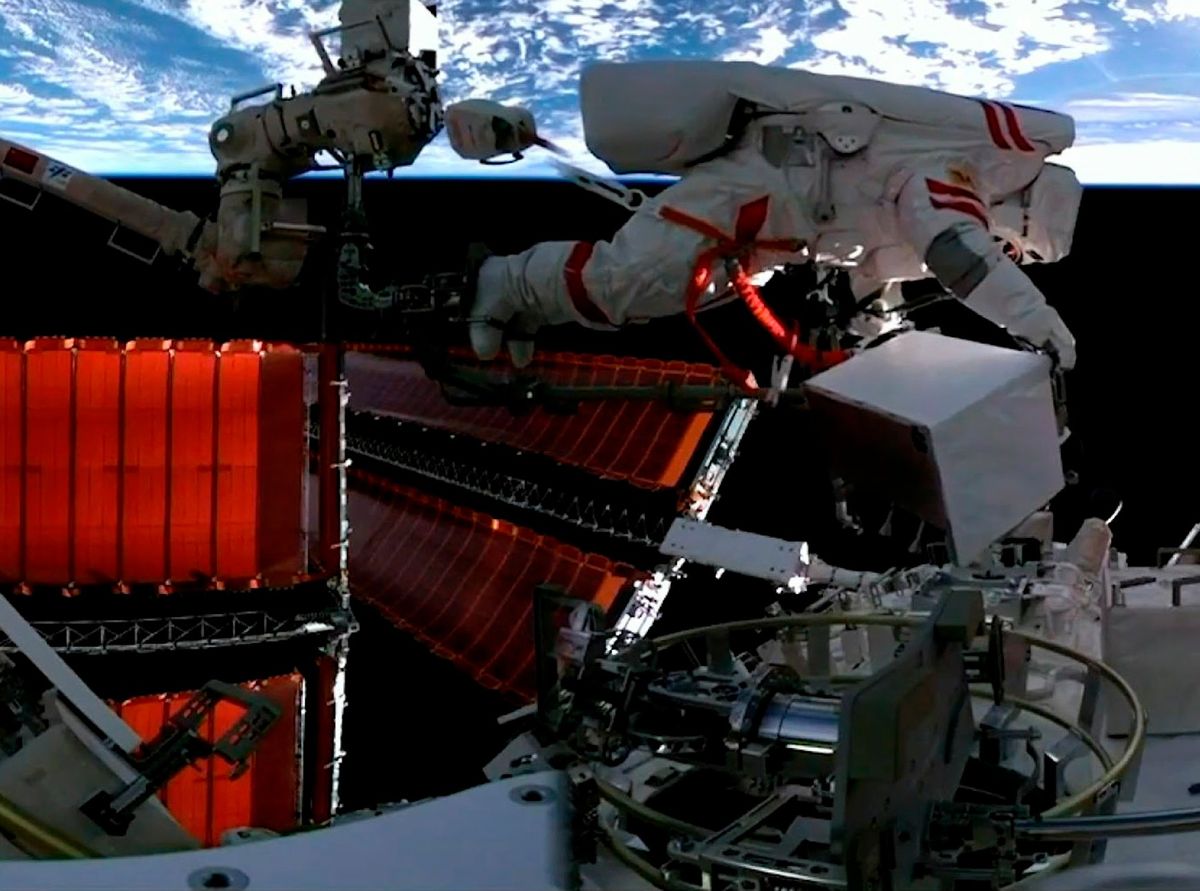China’s Tiangong space station plans expansion to rival NASA and the ISS
China's primary space contractor, the China Academy of Space Technology (CAST), just revealed some big space updates.

A few minutes every morning is all you need.
Stay up to date on the world's Headlines and Human Stories. It's fun, it's factual, it's fluff-free.
The backstory: In 2011, a US law put China on the sidelines when it came to the International Space Station (ISS). Driven by national security concerns, the law bans NASA from working with China in space endeavors. On the other hand, China continued launching its own space missions, all part of a plan to boost its space prowess and construct its own space station, known as Tiangong, which translates to "Celestial Palace" in Chinese. By 2003, China became the third country to send astronauts into orbit on its own after the former Soviet Union and the US.
More recently: Last year, the construction of the Tiangong space station kicked into high gear. This marked a major milestone in China's space program. And once it’s finished, when the ISS retires, Tiangong will become the sole operating space station for the planet.
It's not just China making big moves in space. Russia, another heavyweight in space exploration, revealed its plans for space diplomacy last year. Moscow has shared its plans for a space station with six modules that can host four cosmonauts. The country also wants to collaborate with fellow BRICS nations, Brazil, India, China and South Africa, to build and run this new space station.
The development: China's primary space contractor, the China Academy of Space Technology (CAST), just revealed some big space updates. It announced that it’s planning to expand Tiangong to have six modules, essentially doubling its size. It also said the operational lifetime of the Tiangong space station would be more than 15 years (beyond the previously stated 10 years).
Expanding Tiangong to six modules is a big deal. Although its current mass is only 40% of the ISS, the timing is crucial. The ISS, with over two decades of service, is expected to retire after 2030. This is right around the same time that China has said it thinks it will be a "major space power." With this expansion, Tiangong can offer an alternative to the ISS for astronauts worldwide.
Key comments:
"To explore the vast cosmos, develop the space industry and build China into a space power is our eternal dream," said President Xi Jinping.
"I would like to invite BRICS partners to ... create a fully-fledged module that, being part of the ROS, would allow the BRICS countries to use the possibilities of low-Earth orbit to implement their national space programmes," Roscosmos Director-General Yuri Borisov was quoted as saying.
“President Xi Jinping has declared that China’s ‘Space Dream’ is to overtake all nations and become the leading space power by 2045,” said Christopher Newman, professor of space law and policy at the UK’s Northumbria University. “This all feeds into China’s ambition to be the world’s single science and technology superpower.”




Comments ()